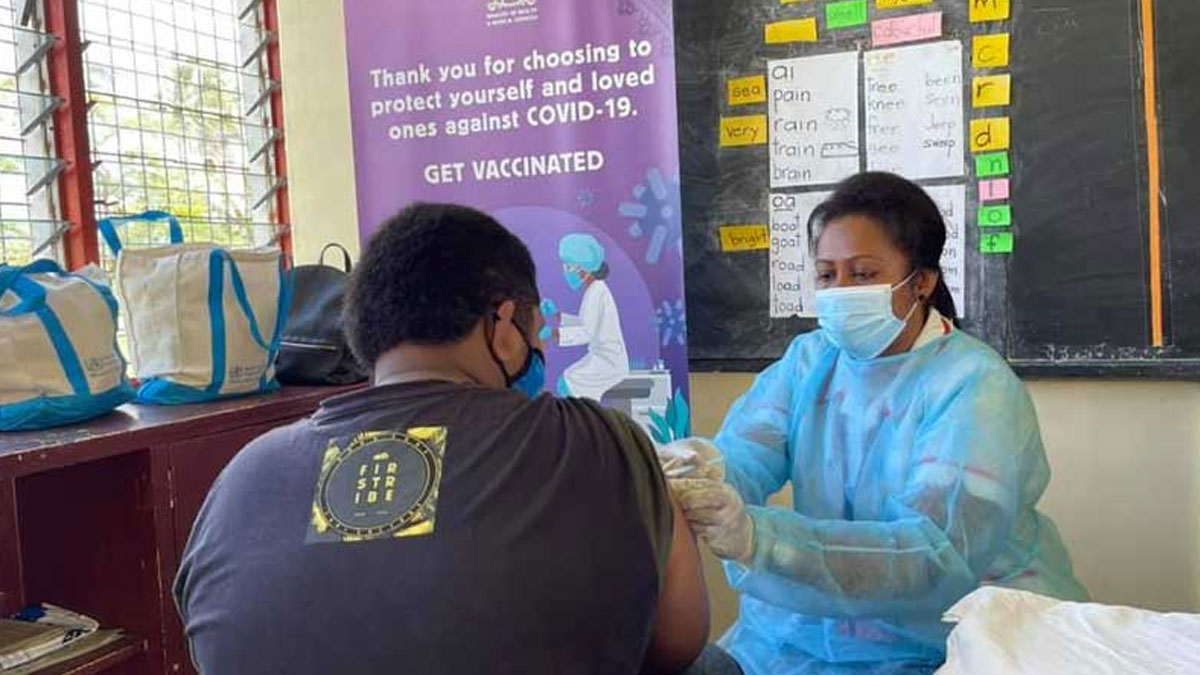
The Ministry of Health is now recommending to people to wear a well-fitting mask if you are experiencing COVID or flu-like symptoms and when in indoor or public settings or when physical distancing is not possible.
The Ministry says it is recommended to wear a mask if you are serving people who are showing COVID or flu-like symptoms to avoid catching the virus.
Travellers to countries that are experiencing a rise in COVID infections are encouraged to take and wear masks when moving about in these countries.
Those who develop any COVID-19 symptoms are advised to visit their nearest health facility to get tested immediately and if positive, isolate at home for 5-days.
The Health Ministry in collaboration with the World Health Organization is closely monitoring the emergence of the COVID-19 JN.1 sub-variant as reported in other countries.
The Ministry says while there is currently no evidence to suggest there is increased transmissibility or severity of disease caused by the JN.1 variant compared to other circulating variants, they are taking proactive measures to ensure that the public remains vigilant and takes appropriate measures to protect themselves and those around them.
The Ministry has scaled up surveillance through their Early Warning, Alert and Response System syndromic surveillance system, and laboratory investigations at the Fiji Centre for Disease Control, and major hospitals around the country.
Testing kits have been distributed to the CDC labs in Nadi and Suva, and all Divisional Hospitals around the country to boost the testing for suspected COVID cases presenting at the hospitals.
The Health Ministry says while cases of COVID-19 continue to be seen around the country to date, no rise in cases or admissions has been recorded.
The Ministry has also not diagnosed the JN.1 variant from the COVID cases seen in the country to date.
Members of the public are advised to take note of the following COVID-safe measures that will protect them from acquiring the disease and suffering from severe COVID-19 disease.
This also includes personal hygiene - wash your hands frequently with soap and water or use an alcohol-based sanitizer.
Keep rooms well-ventilated rooms by opening windows and doors whenever possible to reduce airborne transmission.
Ensure you are fully vaccinated with all recommended doses, including boosters, to provide the strongest protection against severe illness.
The MOH says vaccines remain highly effective in preventing serious outcomes, even with new variants.
COVID-19 vaccine is available for those who need primary doses (1st & 2nd) as well as booster doses.
People in the high-priority groups have the highest chance of becoming seriously ill or dying.
The Ministry says revaccination with booster doses is recommended only for persons in the high-priority groups.
These are the oldest adults (aged 75 years or older), older adults and those with comorbidities (60 to 75 years old), pregnant mothers, adults with comorbidities or severe obesity (18 to 59 years old), and first-line healthcare workers.
Vaccination sites open on working days are the Suva Health Centre in the Central Division, Sigatoka Health Centre, Nadi Health Centre, and Lautoka Health Centre in the Western Division and Labasa Health Centre in the Northern Division.
Members of the public need to note that January is the start of the Flu (influenza) season in Fiji, and it is anticipated that there will be an increase in the number of Flu cases around the country from January to March.
The recommended protective measures will also help to prevent you from contracting the flu, as well as prevent the spread of the flu virus to others.
In addition, the Ministry has made Flu vaccines available for the vulnerable population – the elderly, and pregnant mothers in any trimester of their pregnancy.
While the Ministry remains committed to providing updates and evidence-based guidance, they urge the public to continue practicing these simple yet effective measures to safeguard yourselves and your loved ones.
Stay tuned for the latest news on our radio stations

